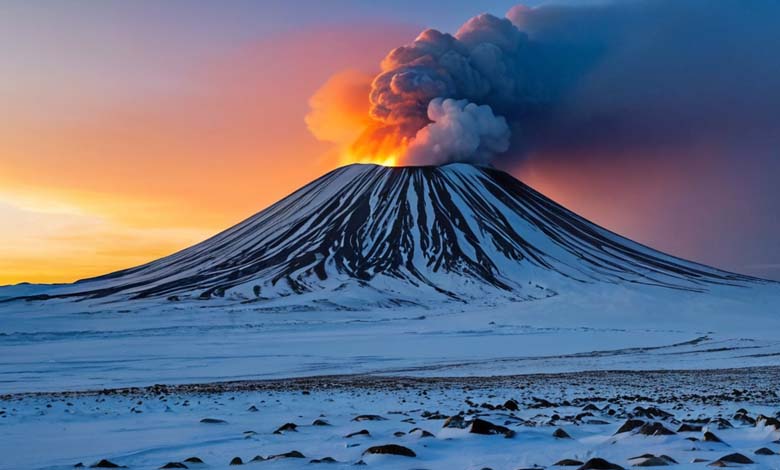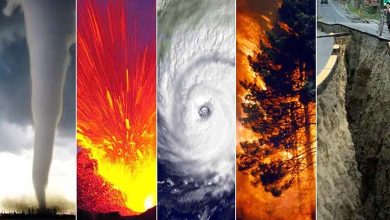Study Warns: Antarctic Ice Melt Could Trigger Volcanic Eruptions

Scientists have warned that melting ice in Antarctica could lead to volcanic eruptions beneath the continent’s vast ice sheet, creating a slow but potentially dangerous feedback loop.
According to The Independent, a new study suggests that the melting of the Antarctic ice sheet, driven by the climate crisis, could increase volcanic activity beneath the surface.
-
New Volcanic Eruption Causes Flight Cancellations in Bali
-
A Majestic Scene of a Volcanic Eruption in Iceland
The study reveals that Antarctica is home to more than 100 volcanoes, many of which are hidden beneath the ice, particularly along the western coastline. While some of these volcanoes are visible above the ice, many are buried deep beneath, making their detection and study more challenging.
Researchers conducted 4,000 computer simulations to examine how the gradual loss of ice affects magma chambers buried beneath Antarctica’s ice sheet.
-
Volcanic Eruption Covers Parking Lot at Iceland Resort
-
Due to Climate Change… Warnings of Catastrophic Volcanic Eruptions in Iceland
The findings suggest that ice melt reduces pressure on the underlying rocks, allowing compressed magma to expand. This process increases pressure on the walls of magma chambers, potentially leading to volcanic eruptions.
The study highlights that the weight of the ice sheet acts as a lid on the underlying magma. As the ice melts, the lid’s pressure decreases, allowing dissolved gases in the magma to escape — much like opening a soda bottle. This gas release increases pressure in the magma chamber, raising the likelihood of an eruption.
-
The Secrets of the Indian Ocean: How Was the Longest Underwater Mountain Range Formed?
-
Powerful Earthquake Hits Papua Region in Indonesia
Although these eruptions occur beneath the surface and may not be visible, they could have severe consequences, according to the study.
The heat generated by subglacial eruptions could accelerate deep ice melt, further weakening the ice sheet and triggering more volcanic activity.
Scientists warn of a possible feedback loop where ice melt reduces surface pressure, causing more volcanic eruptions, which in turn generate heat and speed up ice melt.
-
After a 5.9-magnitude earthquake, Japan warns of tsunami risk on its remote islands
-
Discovery of an Asteroid That Could Collide with Earth
Such eruptions could exacerbate ice melt, compounding the challenges already posed by global warming, the study notes.
The study also indicates that this feedback mechanism operates over centuries, meaning its effects could persist even if humanity significantly reduces greenhouse gas emissions.
Historical evidence suggests similar processes likely occurred during the last ice age when the Antarctic ice sheet was thicker.
-
Revealing Fascinating Facts About the City of Fire and Hell, Pompeii
-
For the First Time, Scientists Discover Water Frost on Mars’ Volcanoes
While the study emphasizes the slow pace of these changes, it raises concerns about Antarctica’s long-term stability and the implications for global sea levels.
The Antarctic ice sheet is already a major contributor to rising sea levels, and increased volcanic activity could amplify the problem.












